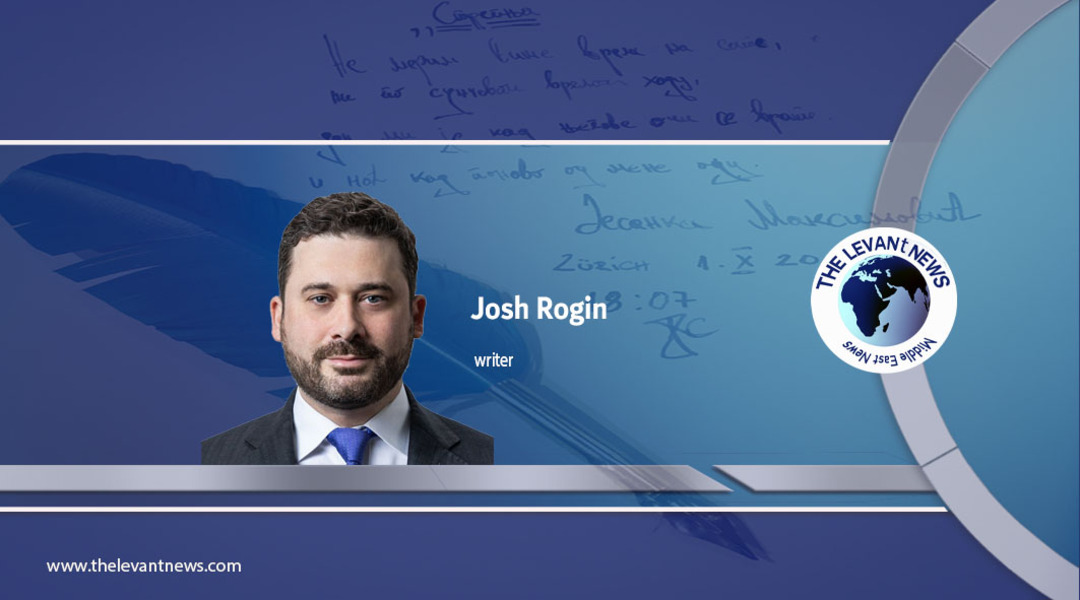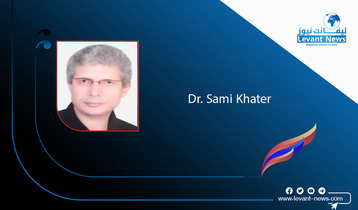-
Assad’s drug empire is funding Iranian-backed militias and fueling Hamas

After the Oct. 7 terrorist attack in Israel, several Hamas militants were reportedly found to be high on the illegal drug Captagon, which surely fueled their murderous rampage. But the drug’s threat is greater than just the boost it gives terrorists. The Captagon trade has become a key tool of influence for the Syrian regime and a massive source of income for the Iranian-backed militias now attacking U.S. troops.
The highly addictive methlike drug Captagon typically comes in small white pills exported by the millions across the Middle East and beyond. Its manufacturing is directly linked to the Syrian armed forces and the family of Syrian president Bashar al-Assad. In addition to being a dictator, war criminal and mass murderer, Assad can now add the title of drug kingpin to his résumé. Exporting these drugs worldwide earns him several billion dollars a year. To get Captagon, named after a former brand of fenethylline, into Europe, the Syrian regime built a distribution network that includes cooperation with Lebanese Hezbollah and the Italian mafia.
What’s worse, the Captagon scourge has Arab gulf states so rattled, they are speedily normalizing relations with Assad in hope he will cut off export to their countries. So far, Assad has used that leverage while only expanding these exports. And the middle men who transfer the drugs to gulf states are the same Iranian-backed militias that have attacked U.S. troops in Iraq and Syria dozens of times since the Israel-Gaza war began. These attacks on U.S. bases by armed drones and missiles have injured at least 56 American troops, according to the Pentagon.
“This is just a continuation of drugs fueling terror,” Rep. French Hill (R-Ark.), a member of the House Foreign Affairs Committee, told me. “Captagon is supporting terrorism financially, providing the money to expand the reach of terrorists and also fueling the terrorists themselves to go out and commit brutal atrocities like we witnessed in Israel.”
Israeli officials have repeatedly confiscated large Captagon shipments heading into Gaza. Iranian- supported militias operating in Syria and Iraq play a key role, because they control Syria’s borders with Iraq and Jordan. They are using the profits from reselling the drugs to purchase weapons and expand their territory. Assad’s cut helps keep him in power and insulates him from international sanctions.
A report last year by the New Lines Institute stated that the Syrian regime exploits the weaknesses in governance in several countries, especially in North Africa and Southern Europe, by partnering with all sorts of non-state actors and criminal organizations. “The trade’s role as a revenue source for state and non-state actors such as the Syrian government, Hezbollah, and state-affiliated militias has fueled malign activities that have exacerbated insecurity, encouraged corruption, and empowered authoritarian behaviors,” the report said.
In March, the United States and Britain issued coordinated sanctions on some Syrian and Lebanese figures at the top of the Captagon trade, including two of Assad’s cousins. Then, in June, the State Department issued a report that said Syrian regime elements were working with figures connected to Lebanese Hezbollah to produce Captagon. The State Department’s strategy to counter Captagon is limited mostly to tackling the criminal distribution network outside Syria.
There’s a lot more that can and should be done. This week, the House Foreign Affairs Committee unanimously approved a bipartisan bill called the Illicit Captagon Trafficking Suppression Act, which Hill co-sponsored with Florida Democrat Jared Moskowitz. The legislation would authorize expanded sanctions against anyone complicit in the international Captagon trade and specifically calls out several additional Syrian regime officials.
Hill has long been calling for more U.S. coordination with regional countries on the Captagon problem. He has raised the issue with governments in Iraq, Saudi Arabia, Egypt, Israel and Turkey. The Biden administration should devote more intelligence, law enforcement and diplomatic resources to prevent Iran, Syria and militias from raking in billions from the illegal Captagon trade, he told me.
“We want to cut off that money,” Hill said. He said enacting the legislation would send “a diplomatic signal that the United States stands ready to press the Assad regime to accomplish one of the Arab states’ goals, which is to eliminate its trafficking in their region.”
The Assad regime has now morphed into more of a mafia organization than a government — and the international community should treat it like one. Unless Syria is stopped from using trafficking to finance and fuel regional violence, the plagues of both drugs and terrorism will only worsen.
BY: Josh Rogin
You May Also Like
Popular Posts
Caricature
BENEFIT AGM approves 10%...
- March 27, 2025
BENEFIT, the Kingdom’s innovator and leading company in Fintech and electronic financial transactions service, held its Annual General Meeting (AGM) at the company’s headquarters in the Seef District.
During the meeting, shareholders approved all items listed on the agenda, including the ratification of the minutes of the previous AGM held on 26 March 2024. The session reviewed and approved the Board’s Annual Report on the company’s activities and financial performance for the fiscal year ended 31 December 2024, and the shareholders expressed their satisfaction with the company’s operational and financial results during the reporting period.
The meeting also reviewed the Independent External Auditor’s Report on the company’s consolidated financial statements for the year ended 31 December 2024. Subsequently, the shareholders approved the audited financial statements for the fiscal year. Based on the Board’s recommendation, the shareholders approved the distribution of a cash dividend equivalent to 10% of the paid-up share capital.
Furthermore, the shareholders endorsed the allocation of a total amount of BD 172,500 as remuneration to the members of the Board for the year ended 31 December 2024, subject to prior clearance by related authorities.
The extension of the current composition of the Board was approved, which includes ten members and one CBB observer, for a further six-month term, expiring in September 2025, pending no objection from the CBB.
The meeting reviewed and approved the Corporate Governance Report for 2024, which affirmed the company’s full compliance with the corporate governance directives issued by the CBB and other applicable regulatory frameworks. The AGM absolved the Board Members of liability for any of their actions during the year ending on 31st December 2024, in accordance with the Commercial Companies Law.
In alignment with regulatory requirements, the session approved the reappointment of Ernst & Young (EY) as the company’s External Auditors for the fiscal year 2025, covering both the parent company and its subsidiaries—Sinnad and Bahrain FinTech Bay. The Board was authorised to determine the external auditors’ professional fees, subject to approval from the CBB, and the meeting concluded with a discussion of any additional issues as per Article (207) of the Commercial Companies Law.
Speaking on the company’s performance, Mr. Mohamed Al Bastaki, Chairman BENEFIT , stated: “In terms of the financial results for 2024, I am pleased to say that the year gone by has also been proved to be a success in delivering tangible results. Growth rate for 2024 was 19 per cent. Revenue for the year was BD 17 M (US$ 45.3 Million) and net profit was 2 Million ($ 5.3 Million).
Mr. Al Bastaki also announced that the Board had formally adopted a new three-year strategic roadmap to commence in 2025. The strategy encompasses a phased international expansion, optimisation of internal operations, enhanced revenue diversification, long-term sustainability initiatives, and the advancement of innovation and digital transformation initiatives across all service lines.
“I extend my sincere appreciation to the CBB for its continued support of BENEFIT and its pivotal role in fostering a stable and progressive regulatory environment for the Kingdom’s banking and financial sector—an environment that has significantly reinforced Bahrain’s standing as a leading financial hub in the region,” said Mr. Al Bastaki. “I would also like to thank our partner banks and valued customers for their trust, and our shareholders for their ongoing encouragement. The achievements of 2024 set a strong precedent, and I am confident they will serve as a foundation for yet another successful and impactful year ahead.”
Chief Executive of BENEFIT; Mr. Abdulwahed AlJanahi commented, “The year 2024 represented another pivotal chapter in BENEFIT ’s evolution. We achieved substantial progress in advancing our digital strategy across multiple sectors, while reinforcing our long-term commitment to the development of Bahrain’s financial services and payments landscape. Throughout the year, we remained firmly aligned with our objective of delivering measurable value to our shareholders, strategic partners, and customers. At the same time, we continued to play an active role in enabling Bahrain’s digital economy by introducing innovative solutions and service enhancements that directly address market needs and future opportunities.”
Mr. AlJanahi affirmed that BENEFIT has successfully developed a robust and well-integrated payment network that connects individuals and businesses across Bahrain, accelerating the adoption of emerging technologies in the banking and financial services sector and reinforcing Bahrain’s position as a growing fintech hub, and added, “Our achievements of the past year reflect a long-term vision to establish a resilient electronic payment infrastructure that supports the Kingdom’s digital economy. Key developments in 2024 included the implementation of central authentication for open banking via BENEFIT Pay”
Mr. AlJanahi concluded by thanking the Board for its strategic direction, the company’s staff for their continued dedication, and the Central Bank of Bahrain, member banks, and shareholders for their valuable partnership and confidence in the company’s long-term vision.
opinion
Report
ads
Newsletter
Subscribe to our mailing list to get the new updates!





















